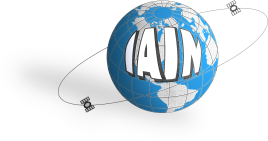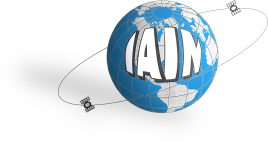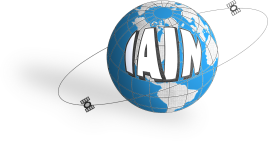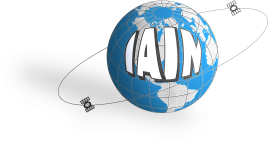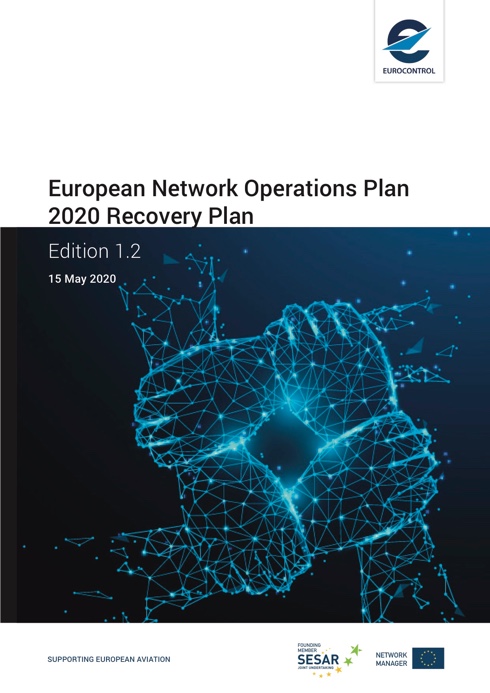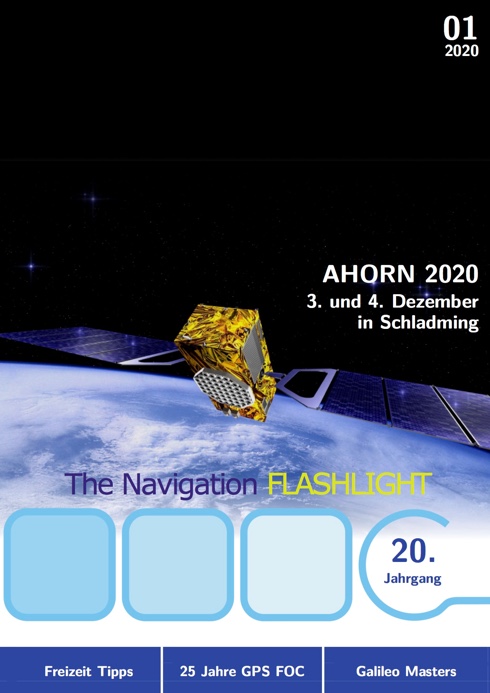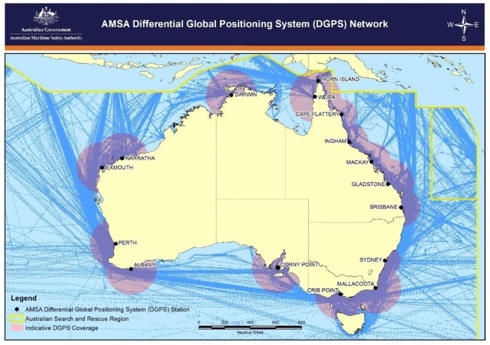South Africa’s maritime safety legislation
South Africa’s President Cyril Ramaphosa has signed into law legislation that will improve the safety of navigation in South Africa’s territorial waters. The Presidency made the announcement in a statement on 5 June.
The Hydrographic Act provides for the establishment of the Hydrographic Office as a unit within the South African Navy, with the responsibility for the safety of navigation in South Africa’s exclusive economic zone and the internal waters of the Republic.
The office will ensure that hydrographic surveying is carried out in accordance with international specifications and will issue sailing directions, notices to mariners and nautical publications in addition to the provision of other services.
Thailand team wins UN access to ESA hypergravity centrifuge
ESA and the United Nations Office for Outer Space Affairs have selected a team from Mahidol University, Thailand to carry out research using ESA’s hypergravity-generating Large Diameter Centrifuge. The team will see how watermeal – the smallest flowering plant on Earth, even smaller than the more familiar duckweed – responds to changing gravity levels to assess its usefulness for space-based life support systems.
ICS Publications embraces digitalisation
The ever-increasing pace of digital connectivity on board ship has led to the rapid development of onboard communications. Digitalisation is challenging traditional shipping practices, and the shipping industry demands instant access to information. In addition to ensuring safe implementation of these new ways of working the International Chamber of Shipping (ICS) has now made a wide range of its essential maritime publications available as ebooks.
IAIN representative report – RNTF
Here is the latest report from the IAIN’s representative at RNTF, the Resilient Navigation and Timing Foundation.
IAIN representative report – ICAO
Here is the latest report from the IAIN’s representative at ICAO.
IAIN representative report – IMO
Here is the latest report from the IAIN’s representative at IMO.
IAIN representative report – ICG
Here is the latest report from the IAIN’s representative at the ICG.
IAIN representative report – CIRM
Here is the latest report from the IAIN’s representative at the CIRM.
The Institute of Navigation launches its new ION Online Job Board

Responding to the need for a specialized PNT community job board, the Institute of Navigation has launched a new ION Online Job Board. This was reported by ION from its HQ in Manassas, Virginia on 1 June.
Lisa Beaty, ION Executive Director, commented: ‘To meet the burgeoning demand for a targeted talent pool specific to the PNT community, the new ION Online Job Board will help connect qualified job seekers with exciting and diverse employment opportunities for this niche audience, and in turn will help our corporate members continue to build talented teams to better ensure the success of their business.’
CANSO and Metron Aviation new partnership
It was announced from Amsterdam on 27 May that the Civil Air Navigation Services Organisation (CANSO) will provide Metron Aviation’s commercial demand prediction tool – Horizon – to global air navigation service providers (ANSPs) on a complimentary basis until the end of October 2020. It is understood that the enhanced information regarding traffic demand the tool provides will be particularly helpful to ensure efficient management of traffic flows as travel restrictions are lifted and air traffic levels restored.
Horizon is a web-based application that provides demand predictions for arriving, departing and en route aircraft based on scheduled, planned and actual data. The system combines flight plan and surveillance feeds to offer strategic, pre-tactical and tactical demand predictions for traffic flying through airspace. It will enhance ANSPs’ situational awareness and increase the predictability of airport and airspace usage.
Safety of navigation remains paramount

As the world continues to be in quarantine, provision of aids to navigation are essential services vital for the safety of marine navigation and the continuous flow of trade be it food, fuel and medical supplies, along with the many other commodities and raw materials upon which we all depend daily.
One of IALA’s national members, the Directorate General of Lighthouses and Lightships (DGLL) of India has produced a video reassuring the general public of their commitment to keeping their service fully operational and to ensure safety of marine navigation along India’s coastline despite the confinement.
Rolls-Royce reorganisation statement
In response to news in week ending 23 May of job cuts at Rolls-Royce, Andrew Bradley, Chair of the Aerospace Board at the Institution of Mechanical Engineers, commented: ‘This week Rolls-Royce has announced plans to reduce its workforce by 9000, the vast majority of which will be in its Civil Aerospace division. This is a sad reflection of the hit to the Civil Aviation market by Covid-19. Boeing has estimated that for 2020 worldwide Revenue Passenger Kilometres will reduce by 50% from 2019 levels.’
The 2019 Alexander Dalrymple Award
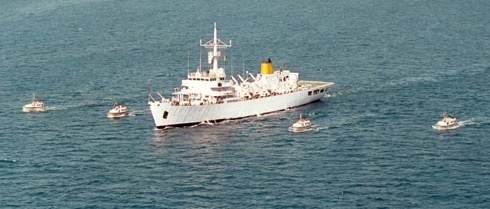
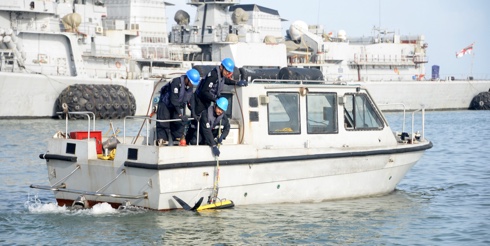
On 18 May the United Kingdom Hydrographic Office (UKHO) reported that the 2019 Alexander Dalrymple Award has been presented to Vice-Admiral Vinay Badhwar, National Hydrographer to the Government of India, in recognition of his outstanding contribution to Indian hydrography and across the wider Indian Ocean region.
As National Hydrographer, Vice-Admiral Badhwar has been a pivotal member of the International Hydrographic Organization’s Capacity Building Sub-Committee since its creation. He also leads the Indian Naval Hydrographic Office’s own regional Capacity Building programmes, coordinating efforts to help Indian Ocean coastal states to develop their hydrographic and cartographic capabilities – an important step to unlocking each of these states’ blue economies.
Seafarers are feeling let down and abandoned by their governments
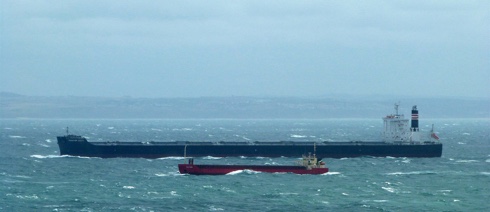
IFSMA calls upon Governments to adopt the ‘Framework of protocols for ensuring safe ship crew changes and travel during the COVID-19 pandemic’ without delay to allow ship owners and management companies to change over their dangerously tired crews.
Governments must act now in order to avoid personal injury to, and mental breakdown of, seafarers and avoid the significant risk of accidents and consequential danger to life and the environment.
IFSMA is receiving an increasing number of reports from its ship masters’ associations around the world concerned for the welfare and safety of crews and the increased risk with which they are operating in an already high risk environment. Seafarers are feeling let down and abandoned by their Governments.
COVID-19 impact on the European air traffic network
While over a million flights fewer have operated across the European network compared with 2019 since the COVID-19 pandemic hit Europe, air traffic is now slowly starting to pick up. As the recovery slowly started, on 30 April, the first edition of the NOP 2020 Recovery Plan was published.
The Plan will be issued every Friday, and reviewed by video conference every Monday by operational stakeholders in the Ad hoc Enlarged NDOP Recovery Cell, a body that brings Europe’s Network ANSPs, airports, airlines and military Directors of Operations together to enhance performance and tackle issues on a network basis.
IMO and protection from infection advice

During the COVID-19 pandemic, it is crucial that all personnel involved are protected from infection, including those onboard ships and shore personnel who may need to temporarily go on ships or interact with seafarers. This message was emphasised by IMO on 14 May.
IMO has circulated World Health Organization (WHO) guidance on the safe and effective use of personal protective equipment (PPE), to support decisions on use of PPE to minimize the risks of COVID-19 infection for seafarers, marine personnel, fishing vessel personnel, passengers and others on board ships. This guidance also applies to shore personnel intending to go on board (such as pilots, port workers, port State control officers, ships’ agents and so forth); and when any of these people interact with each other.
To support decision making and risk assessment, IMO has also circulated practical measures to address COVID-19 risks for all people involved on ships and in ports when they may need to interact with each other,
US Maritime Patrol and Reconnaissance Force passes key milestones
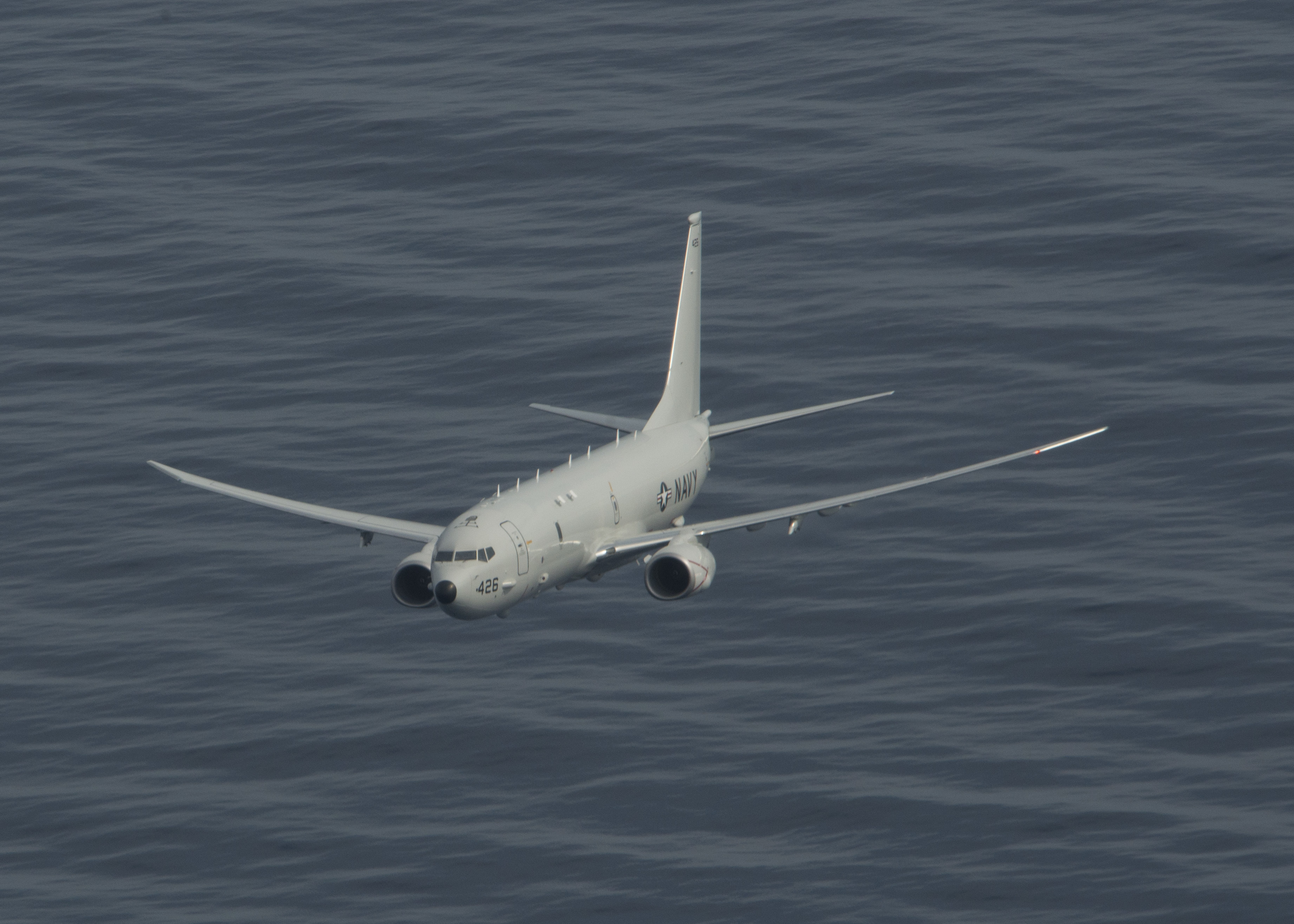
The second week of May marked a number of noteworthy milestones for US Naval Aviation and the Maritime Patrol and Reconnaissance Force (MPRF).
Patrol Squadron (VP) 40 completed a Safe-For-Flight evaluation on 14 May for acceptance of their first P-8A Poseidon, the culminating event of a six-month transition from the P-3C Orion. VP-40 represents the twelfth and final active component VP squadron to transition from the P-3C Orion to the state-of-the-art P-8A Poseidon platform, a process that began eight years ago with VP-16 aboard NAS Jacksonville.
The last P-3C to return from that deployment now resides at the National Naval Aviation Museum in Pensacola, Florida. The museum and MPRF leadership are in the planning stages of a formal ceremony and display.
The Navigation Flashlight
From our Austrian member institute, the Österreichischer Verein für Navigation, we have received word of the latest issue of their regular publication, The Navigation Flashlight. It is published three times a year, currently in its twentieth year of publication and it is in German.
USN and RN elements in the Barents Sea
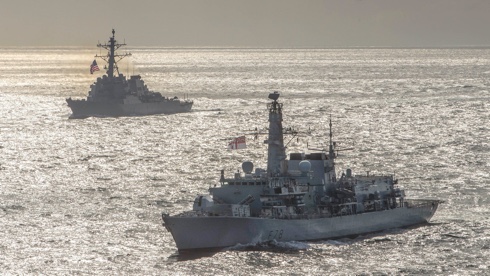

On 8 May US Naval Forces Europe-Africa / US Sixth Fleet Public Affairs reported that US guided-missile destroyers and a British frigate had departed the Barents Sea that day following seven days of Arctic operations.
As the Arctic continues to become more accessible to maritime traffic, naval proficiency in the region is critical to regional security, global commerce, and American national interests. The SAG’s operations provided the opportunity for Sailors to demonstrate their readiness for sustained Arctic operations in the unique and challenging environment.
Shutdown of AMSA’s differential global positioning system (DGPS) service
This was announced by AMSA from Canberra on 5 May.
AMSA established its radiobeacon DGPS service in the 1990s, to improve the accuracy and integrity of GPS information for ships navigating off the coast of Australia. At the time, the publicly available GPS signal was intentionally degraded, resulting in large position errors of up to 200 metres. Augmentation was necessary to correct for these errors and meet minimum requirements for maritime positioning and navigation.
In the year 2000, the intentional error in GPS positioning was removed. Since then system technology has improved and the GPS constellation has been modernised. Observed positional accuracy for unaugmented GPS now consistently meets IMO requirements for accuracy in harbour and harbour-approach navigation.
An invitation to GSC’20

You are cordially invited to participate in GSC’20 – the annual meeting of graduate students in the field of Control and Systems Theory.
The event is organized by Professor A Khina and Professor M Margaliot from the School of Electrical Engineering, Tel Aviv University, and will be held on-line on 4 May, 2020.
Annual meeting of the IAIN Officers’ Committee
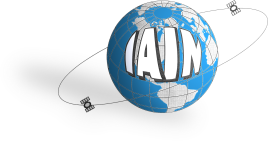
In accordance with Article 7 of the Association’s Constitution, a meeting of the committee of Officers will take place virtually, by teleconference on 11 May 2020. This is instead of the meeting planned to take place during the European Navigation Conference 2020 in Dresden on the same date.
Galileo positioning aiding COVID-19 reaction
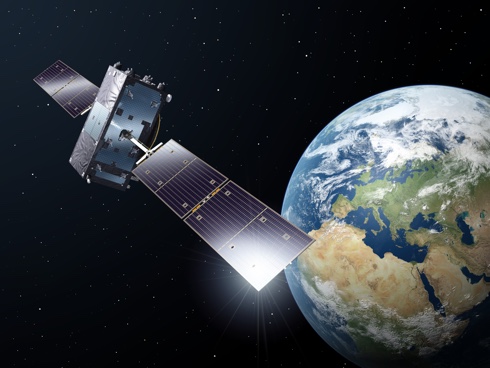
As European governments plan their phased recoveries from the lockdown states triggered by the COVID-19 pandemic, the positioning delivered through satellite navigation is becoming more important than ever before. Location is a key requirement when attempting to monitor and map the spread of a disease and satnav is one of the main tools supporting this.
Cyber security: a CIRM request
The organisation reported at the end of April that it seeks feedback on two Cyber Security documents which they published in February 2020:
– CIRM Cyber Risk Code of Practice for Vendors of Marine Electronic Equipment and Services
– CIRM Guideline GL-002 – Implementing the CIRM Cyber Risk Code of Practice
The Code of Practice consists of six guiding principles for vendors of marine electronic equipment and services to establish their role in providing a secure digital maritime environment. The Guideline GL-002 provides advice on implementing the Code of Practice.
A blast for the world’s seafarers
The International Chamber of Shipping (ICS) and the International Transport Workers’ Federation (ITF) are calling upon ship captains across the world to sound their ships’ whistles when in port at 1200 local time on International Workers’ Day, 1 May 2020, recognised in many countries around the world to celebrate and acknowledge the contribution of workers.
The initiative is especially seen in support of the ICS-ITF campaign to facilitate crew changes. It follows the ‘Horns of Hope’ solidarity campaign initiated by Abu Dhabi Ports, which calls upon ports worldwide to allow ships in port to sound their horns every day at 1830 local time, in support of all critical workers, including port workers and seafarers.



